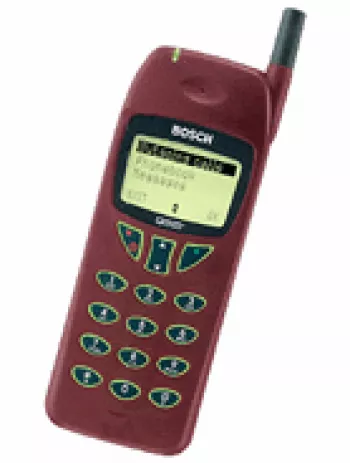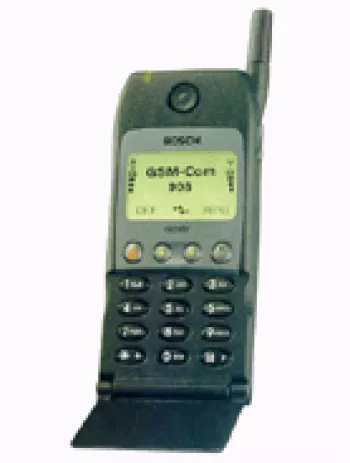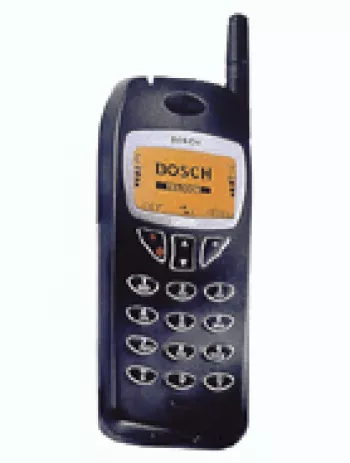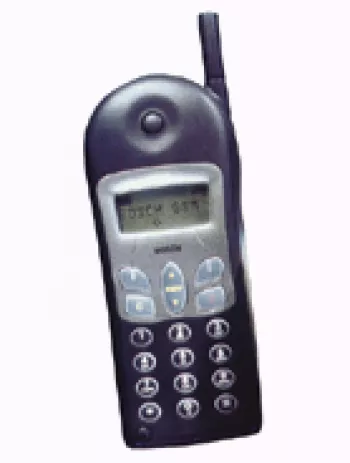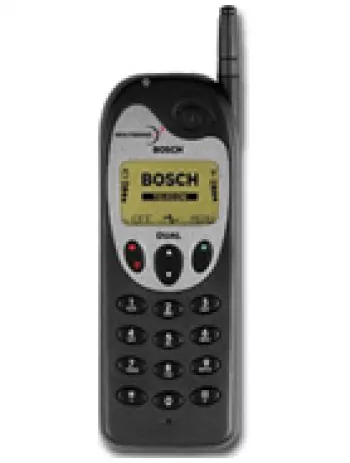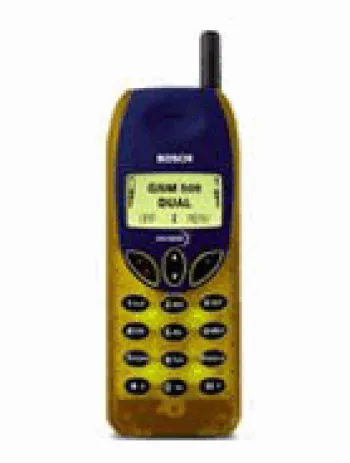
Overview of Bosch Com 509
The Bosch Com 509 represents a fascinating chapter in the history of mobile technology. Announced in 1999, this device is emblematic of the era's transitionary phase where mobile phones were evolving from mere communication tools into more feature-rich companion devices. Despite its now dated specifications, the Bosch Com 509 offers a glimpse into the mobile technology landscape at the turn of the millennium.
Network Capabilities
The Bosch Com 509 operates on GSM technology, supporting 2G bands with GSM 900 / 1800 frequencies. At its launch, this capability was quite standard, allowing users to make calls and send SMS over these frequencies. However, it does not support GPRS or EDGE, which would become more prevalent in later mobile devices for internet connectivity.
Design and Build
The device has dimensions of 134 x 53 x 23 mm, which may seem bulky by today's standards, yet it was quite typical for phones of that era. Weighing in at 150 grams, the Bosch Com 509 was relatively lightweight considering its robust build. The device was equipped with a Mini-SIM slot and featured a half-transparent design available in several colors, offering a distinctive look.
Display Features
In the realm of displays, the Bosch Com 509 featured a monochrome graphic screen, capable of displaying 4 x 16 characters. This monochrome display reflects the technology of the time before color screens became standard in mobile phones. While basic, the display was sufficient for text-based communication such as SMS and simple menu navigation.
Memory Specifications
Memory was quite limited in the Bosch Com 509. It lacked a card slot for expandable storage, depending solely on the SIM memory. The phonebook functionality was also restricted to the SIM only, and it supported call records for the last 10 dialed, received, and missed calls.
Audio and Sound
Audio on the Bosch Com 509 was minimalistic, corresponding to the norms of the time. It did not include a loudspeaker, 3.5mm jack, or stereo output. Alert tones were restricted to monophonic ringtones, which was a common feature before polyphonic and real-music ringtones revolutionized mobile sound capabilities.
Communication Features
The communication features of the Bosch Com 509 excluded several modern mainstays. It did not support WLAN, Bluetooth, positioning services, or USB connectivity. This highlights the device's focus on basic telephony rather than advanced connectivity and data synchronization, still not prevalent at the time.
Additional Features
Additional features on the Bosch Com 509 were again representative of its time. The phone supported SMS for text messaging, alongside basic utilities like clock and alarm functions. However, it did not offer games, Java support, or an internet browser, underscoring the utilitarian nature of devices from this era.
Power and Battery
The power needs of the Bosch Com 509 were met by a removable NiMH battery, with a stand-by time of approximately 87 hours and a talk time of 4 hours. While these figures may seem limited today, they were adequate for the usage patterns and mobile technology constraints of the late 1990s.
Final Thoughts
In summary, the Bosch Com 509 stands as a testament to the early mobile telephony era, with features that were contemporary for the time but basic by today’s standards. It marks an important step in the evolution of mobile devices, emphasizing basic communication needs and setting the stage for the feature-rich smartphones that would follow. The discontinuation of the device underscores its role in the rapid pace of technological advancement that characterizes the mobile phone industry.
Main Features of Bosch Com 509
- GSM 900 / 1800 technology support
- Compact dimensions: 134 x 53 x 23 mm
- Lightweight design: 150 g
- Monochrome graphic display
- SMS messaging capability
- Includes basic utilities: Clock and Alarm
- Removable NiMH battery
- Stand-by battery life of up to 87 hours
- Up to 4 hours of talk time
- Available in several colors with half-transparent options
Disadvantages of Bosch Com 509
- Limited Network Support: Only supports GSM technology with no GPRS or EDGE.
- Discontinued: The device was announced in 1999 and is no longer available.
- Heavy and Bulky: Weighs 150 g and has dimensions that make it less compact.
- Poor Display: Features a basic monochrome graphic display with low resolution.
- No Expandable Memory: Lacks a card slot for additional storage; relies on SIM only.
- No Camera: Does not include any camera features.
- Limited Audio Features: No loudspeaker and only monophonic ringtones with no 3.5mm jack.
- Lacks Modern Connectivity: No WLAN, Bluetooth, or USB capabilities.
- Restricted Features: Basic SMS messaging with no browser, sensors, games, or Java support.
- Short Battery Life: Only 87 hours standby and 4 hours talk time with a removable NiMH battery.
View Also
More Phones
All Rights Reserved +14266 Phones © Mobilawy 2025














